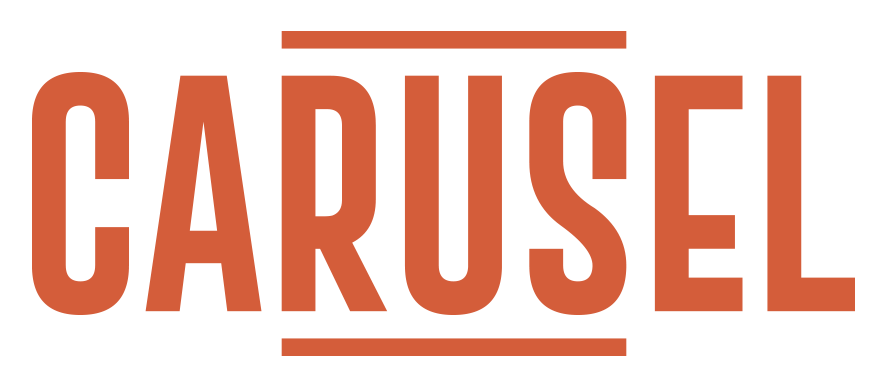26 May 2020
Following Master and his Margarita. Moscow through Mikhail Bulgakov's Eyes

There was one exceptionally hot evening at the end of May in Moscow that smelled of young linden trees.
This is how begins the most famous Russian novel of the 20th century – Master and Margarita by Mikhail Bulgakov. It is a masterpiece and a pleasure to read - funny, sad, romantic and philosophical at the same time.
The novel was printed in full in the Soviet Union only in 30 years after the death of its author. Bulgakov with his imaginative language full of allusions hints at the harsh realities of life in Moscow in the 1930-s, but he does it in such a brilliant way that he makes us laugh rather than cry.
Let us take a walk in central Moscow to see the key sights described in Master and Margarita! Before our virtual tour we will share with you some background information about the characters and events from the novel that will fill the walk with a deep meaning.
Even if you have not read Master and Margarita yet, you might have heard about Bulgakov´s earlier masterpieces, such as the White Guard and the play The Days of the Turbins, often staged by the theatre companies around the world.
Check out Master and Margarita printed editions and audio books for the USA or Europe
This is how begins the most famous Russian novel of the 20th century – Master and Margarita by Mikhail Bulgakov. It is a masterpiece and a pleasure to read - funny, sad, romantic and philosophical at the same time.
The novel was printed in full in the Soviet Union only in 30 years after the death of its author. Bulgakov with his imaginative language full of allusions hints at the harsh realities of life in Moscow in the 1930-s, but he does it in such a brilliant way that he makes us laugh rather than cry.
Let us take a walk in central Moscow to see the key sights described in Master and Margarita! Before our virtual tour we will share with you some background information about the characters and events from the novel that will fill the walk with a deep meaning.
Even if you have not read Master and Margarita yet, you might have heard about Bulgakov´s earlier masterpieces, such as the White Guard and the play The Days of the Turbins, often staged by the theatre companies around the world.
Check out Master and Margarita printed editions and audio books for the USA or Europe

Famous quotes from Master and Margarita
Manuscripts don't burn
Love leaped up out at us like a murderer jumping out of a dark alley. It shocked us both - the shock of a stroke of lightning, the shock of a flick-knife.
Manuscripts don't burn
Love leaped up out at us like a murderer jumping out of a dark alley. It shocked us both - the shock of a stroke of lightning, the shock of a flick-knife.
How Master and Margarita was created
Mikhail Bulgakov, a native of Kiev, first arrived to Moscow when he was 30 with his first wife and one intention – to forget about his past and become a great writer. He fell in love with the city straight away, even though he struggled to find how to earn money in his new literary role and where to live.
The first version of Master and Margarita was created by Bulgakov during the period when he lived with his second wife and it did not contain either Master or Margarita. It was mainly about the adventures of the devil and his entourage in Moscow and it lacked the romantic line.
When Bulgakov met his future third wife, Elena Shilovskaya, the romantic line appeared naturally. So, the new version of the novel was created with the characters of Margarita, that relied heavily on Elena, and the Master who, to some extent, reminds Bulgakov himself.
Bulgakov thought of it as his main literary work and he died after the novel was completed. Bulgakov believed that his novel would enjoy great success posthumously. Elena edited the final version already without him and she devoted the rest of her life to get the novel printed.
The first version of the novel with many omissions was printed in the USSR in 1967, the same year Master and Margarita was printed in Paris completely. The complete version of the book in the USSR was published in 1973. Many people around the world were so impressed by the novel that there exist numerous references to Master and Margarita in music and popular culture.
Master and Margarita contains allusions on the life in Moscow of the 1930-s, that would have been easily decrypted by Bulgakov's contemporaries and that are not necessarily clear to us nowadays. The novel is a masterpiece because even without knowing well the history of that terrifying period we enjoy reading it - it contains something for each generation of readers.
Mikhail Bulgakov, a native of Kiev, first arrived to Moscow when he was 30 with his first wife and one intention – to forget about his past and become a great writer. He fell in love with the city straight away, even though he struggled to find how to earn money in his new literary role and where to live.
The first version of Master and Margarita was created by Bulgakov during the period when he lived with his second wife and it did not contain either Master or Margarita. It was mainly about the adventures of the devil and his entourage in Moscow and it lacked the romantic line.
When Bulgakov met his future third wife, Elena Shilovskaya, the romantic line appeared naturally. So, the new version of the novel was created with the characters of Margarita, that relied heavily on Elena, and the Master who, to some extent, reminds Bulgakov himself.
Bulgakov thought of it as his main literary work and he died after the novel was completed. Bulgakov believed that his novel would enjoy great success posthumously. Elena edited the final version already without him and she devoted the rest of her life to get the novel printed.
The first version of the novel with many omissions was printed in the USSR in 1967, the same year Master and Margarita was printed in Paris completely. The complete version of the book in the USSR was published in 1973. Many people around the world were so impressed by the novel that there exist numerous references to Master and Margarita in music and popular culture.
Master and Margarita contains allusions on the life in Moscow of the 1930-s, that would have been easily decrypted by Bulgakov's contemporaries and that are not necessarily clear to us nowadays. The novel is a masterpiece because even without knowing well the history of that terrifying period we enjoy reading it - it contains something for each generation of readers.

Mikhail Bulgakov (1928)
Prototypes of the main characters and events in the novel
Bulgakov loved Goethe's Faust, and, coming from the family of priests and theology professors, he knew the New and Old Testaments well. In Master and Margarita you can see numerous references to these books, the other important source of inspiration was his life in Moscow and the people he met.
Woland. In the book Woland personifies the Devil himself on his voyage to Moscow. Although the name for the character is taken from the Faust and his figure seems more to be a part of the folklore to us, Bulgakov's friends who were invited by the author on his first reading of Master and Margarita were terrified – they had another association in their heads and it had nothing to do with the Faust or European legends.
Marietta Chudakova, one of the most important researchers of Bulgakov, says that in the figure of Woland Bulgakov's friends saw Joseph Stalin. They were scared that this book could have been published the way it was, as everyone in the Soviet Union in the 1930-s was afraid of Stalin – it was the time of the Great Terror and mass repressions, when many people were taken from their homes never to return.
Stalin who had his own entourage just like Woland did in the novel, had complex relations with Bulgakov. Although he personally banned his first major work, Run, as, in his own words, it was idealizing the figures of White generals and emigration, he let Bulgakov's consequent work, The Days of the Turbins (1926), that also deals with the horrors of the Civil War from the point of view of those who lost it, the tsarist officers, to be published and staged by the major theatre of Moscow at that time, the Moscow Art Theatre. Stalin turned out to be a great admirer of this play - he visited it no less than 15 times and personally protected its author from the critics' attacks!
In a couple of years everything turned upside down - Stalin withdrew all Bulgakov's plays from the theatre's repertoires just before their productions should have been premieres and he initiated an accusatory campaign against the writer. Bulgakov lost his job at the Moscow Art Theatre.
When Bulgakov was on the verge of a nervous breakdown he wrote a letter to Stalin asking at least let him leave the country. In response Stalin called him personally over the phone and asked him if they really should let Bulgakov go? Bulgakov was so shocked by the call that he did not say yes, besides, Stalin promised him to return his work at the Moscow Art Theatre, which he did. The call was made on the Good Friday of 1930, the day that surely had an important meaning for both Stalin, the former student of the Church School, and Bulgakov, the son of the theology professor. As you might have noticed, the action in Master and Margarita also goes around the Good Friday.
This complicated relationship between Stalin and Bulgakov, where the former had an absolute power over the fate of the latter certainly influenced the writer when he created his Woland.
Prototypes of the main characters and events in the novel
Bulgakov loved Goethe's Faust, and, coming from the family of priests and theology professors, he knew the New and Old Testaments well. In Master and Margarita you can see numerous references to these books, the other important source of inspiration was his life in Moscow and the people he met.
Woland. In the book Woland personifies the Devil himself on his voyage to Moscow. Although the name for the character is taken from the Faust and his figure seems more to be a part of the folklore to us, Bulgakov's friends who were invited by the author on his first reading of Master and Margarita were terrified – they had another association in their heads and it had nothing to do with the Faust or European legends.
Marietta Chudakova, one of the most important researchers of Bulgakov, says that in the figure of Woland Bulgakov's friends saw Joseph Stalin. They were scared that this book could have been published the way it was, as everyone in the Soviet Union in the 1930-s was afraid of Stalin – it was the time of the Great Terror and mass repressions, when many people were taken from their homes never to return.
Stalin who had his own entourage just like Woland did in the novel, had complex relations with Bulgakov. Although he personally banned his first major work, Run, as, in his own words, it was idealizing the figures of White generals and emigration, he let Bulgakov's consequent work, The Days of the Turbins (1926), that also deals with the horrors of the Civil War from the point of view of those who lost it, the tsarist officers, to be published and staged by the major theatre of Moscow at that time, the Moscow Art Theatre. Stalin turned out to be a great admirer of this play - he visited it no less than 15 times and personally protected its author from the critics' attacks!
In a couple of years everything turned upside down - Stalin withdrew all Bulgakov's plays from the theatre's repertoires just before their productions should have been premieres and he initiated an accusatory campaign against the writer. Bulgakov lost his job at the Moscow Art Theatre.
When Bulgakov was on the verge of a nervous breakdown he wrote a letter to Stalin asking at least let him leave the country. In response Stalin called him personally over the phone and asked him if they really should let Bulgakov go? Bulgakov was so shocked by the call that he did not say yes, besides, Stalin promised him to return his work at the Moscow Art Theatre, which he did. The call was made on the Good Friday of 1930, the day that surely had an important meaning for both Stalin, the former student of the Church School, and Bulgakov, the son of the theology professor. As you might have noticed, the action in Master and Margarita also goes around the Good Friday.
This complicated relationship between Stalin and Bulgakov, where the former had an absolute power over the fate of the latter certainly influenced the writer when he created his Woland.

Elena Shilovskaya (1928), the third wife of Bulgakov
Margarita. Margarita is very much influenced by the image of the last wife of Bulgakov, Elena , whom he affectionately called "my Margarita". Why Margarita? This was the real name of Gretchen from Goethe's Faust, a favourite book of Bulgakov.
Elena was a beautiful and strong woman married to an important Soviet military leader, who despite being a nobleman, fought on the side of the Red Army in the Civil War. She lived in a huge apartment in the house on 11 Bolshoy Rzhevsky Lane (near Arbat) with servants and she never cooked or performed other household duties. However, the love was missing in the family. When she met Bulgakov and they subsequently started to live together, she had to learn how to use the kerosene stove, so often described by Bulgakov in his novels, and cook.
Why Margarita is a witch? Elena remembered that on their first meeting with Bulgakov she asked him to tie up a ribbon on her sleeve and he later said that this way she enchanted him to her forever. Besides, as Marietta Chudakova guesses, it seems strange that of all military men who served with Elena's former husband, only he avoided mass repressions during the Great Terror of the 1930-s. Therefore, it is very likely that Elena was an informer to the Soviet Government and by reporting about other people in her circle she thus saved the lives to her, her former husband and, probably, Bulgakov, who also, unlike many of his literary friends and writers, was not arrested.
Margarita. Margarita is very much influenced by the image of the last wife of Bulgakov, Elena , whom he affectionately called "my Margarita". Why Margarita? This was the real name of Gretchen from Goethe's Faust, a favourite book of Bulgakov.
Elena was a beautiful and strong woman married to an important Soviet military leader, who despite being a nobleman, fought on the side of the Red Army in the Civil War. She lived in a huge apartment in the house on 11 Bolshoy Rzhevsky Lane (near Arbat) with servants and she never cooked or performed other household duties. However, the love was missing in the family. When she met Bulgakov and they subsequently started to live together, she had to learn how to use the kerosene stove, so often described by Bulgakov in his novels, and cook.
Why Margarita is a witch? Elena remembered that on their first meeting with Bulgakov she asked him to tie up a ribbon on her sleeve and he later said that this way she enchanted him to her forever. Besides, as Marietta Chudakova guesses, it seems strange that of all military men who served with Elena's former husband, only he avoided mass repressions during the Great Terror of the 1930-s. Therefore, it is very likely that Elena was an informer to the Soviet Government and by reporting about other people in her circle she thus saved the lives to her, her former husband and, probably, Bulgakov, who also, unlike many of his literary friends and writers, was not arrested.

Evil Flat or Flat 50, currently the Museum of Bulgakov
Master. In the figure of the Master we can see some features of Bulgakov, who got quite tired of his literary struggle by the end of his life and who was often quoted as saying that he needed a strong woman that would be his muse and his support in real life. On the other hand, Bulgakov constantly fought for his rights, unlike his Master, and he was much more down to earth and realistic.
Evil Flat (or Haunted Flat). The flat from which people were vanishing without trace is an allusion on the Great Terror. At this horrible period in our history people were often arrested at the dawn in their apartments and in the morning their neighbour or colleagues would not be able to find them anymore.
Master. In the figure of the Master we can see some features of Bulgakov, who got quite tired of his literary struggle by the end of his life and who was often quoted as saying that he needed a strong woman that would be his muse and his support in real life. On the other hand, Bulgakov constantly fought for his rights, unlike his Master, and he was much more down to earth and realistic.
Evil Flat (or Haunted Flat). The flat from which people were vanishing without trace is an allusion on the Great Terror. At this horrible period in our history people were often arrested at the dawn in their apartments and in the morning their neighbour or colleagues would not be able to find them anymore.

Bulgakov's Museums in Moscow and Evil Flat
10 Bolshaya Sadovaya Street (in the yard)
Currently, there are two Bulgakov Museums in Moscow and they both are situated in the same Art Nouveau building on Bolshaya Sadovaya where Bulgakov lived himself in a communal apartment that was later described by him as the Evil Apartment in Master and Margarita.
By coincidence, in this very building in 1921 Russian poet Sergey Esenin met American dancer Isadora Duncan who became his lover and later his wife for some time. And in 1917 Fanny Kaplan, who shot Vladimir Lenin in 1918, stayed here upon the invitation of the daughter of the owner of the house.
10 Bolshaya Sadovaya Street (in the yard)
Currently, there are two Bulgakov Museums in Moscow and they both are situated in the same Art Nouveau building on Bolshaya Sadovaya where Bulgakov lived himself in a communal apartment that was later described by him as the Evil Apartment in Master and Margarita.
By coincidence, in this very building in 1921 Russian poet Sergey Esenin met American dancer Isadora Duncan who became his lover and later his wife for some time. And in 1917 Fanny Kaplan, who shot Vladimir Lenin in 1918, stayed here upon the invitation of the daughter of the owner of the house.

Entrance to the Bulgakov House Museum
Museums of Bulgakov in Moscow are relatively new. The first one, Bulgakov House, was opened in 2004 on a private initiative. You can enter it for free without excursion.
You will see the entrance to this museum marked by the statues to characters from Master and Margarita. It also has a café with Bulgakov's books and a theatre where Bulgakov's works are staged.
You will see the entrance to this museum marked by the statues to characters from Master and Margarita. It also has a café with Bulgakov's books and a theatre where Bulgakov's works are staged.

Entrance to The Evil Flat, the State Bulgakov Museum
In 2007 the State Bulgakov Museum was opened in flat number 50 of the same house – the very flat where Bulgakov lived in that huge communal apartment with noisy neighbours.
We know some of these neighbours from Bulgakov's short stories and Master and Margarita – such as Annushka, who spilled the sunflower oil in the book. And the flat was the prototype of the Evil Flat in Master and Margarita. Bulgakov disliked the flat and his neighbours so much that in the novel he sets it on fire. In Master and Margarita other institutions, restaurants and shops that troubled him in the real life also burn down - this must have been a sort of the psychological therapy.
In 2007 the State Bulgakov Museum was opened in flat number 50 of the same house – the very flat where Bulgakov lived in that huge communal apartment with noisy neighbours.
We know some of these neighbours from Bulgakov's short stories and Master and Margarita – such as Annushka, who spilled the sunflower oil in the book. And the flat was the prototype of the Evil Flat in Master and Margarita. Bulgakov disliked the flat and his neighbours so much that in the novel he sets it on fire. In Master and Margarita other institutions, restaurants and shops that troubled him in the real life also burn down - this must have been a sort of the psychological therapy.

Graffiti from the Walls of the staircase leading to the Evil Flat
The Evil Flat became the place of pilgrimage for Bulgakov's fans long before the museum was inaugurated. They left the quotes and drawings inspired by the Master and Margarita on the walls along the staircase leading to the top floor with the flat. Currently there are ongoing renovation works in other neighbouring apartments that soon will become the part of the Bulgakov Museum.
The Bulgakov Museum site has an incredible number of materials about the writer and his addresses in Moscow in English.
The former flat of Bulgakov and his second wife on Bolshaya Pirogovskaya Street may soon become a part of the museum too. In that flat Bulgakov wrote his first version of Master and Margarita and burnt it.
Both museums are interesting to visit and they will not take much of your time. They might be a good starting point for your Bulgakov Walk in Moscow.
The Evil Flat became the place of pilgrimage for Bulgakov's fans long before the museum was inaugurated. They left the quotes and drawings inspired by the Master and Margarita on the walls along the staircase leading to the top floor with the flat. Currently there are ongoing renovation works in other neighbouring apartments that soon will become the part of the Bulgakov Museum.
The Bulgakov Museum site has an incredible number of materials about the writer and his addresses in Moscow in English.
The former flat of Bulgakov and his second wife on Bolshaya Pirogovskaya Street may soon become a part of the museum too. In that flat Bulgakov wrote his first version of Master and Margarita and burnt it.
Both museums are interesting to visit and they will not take much of your time. They might be a good starting point for your Bulgakov Walk in Moscow.

The first museum of Bulgakov was opened in a two-storey mansion on a picturesque Andriyivskyy Descent in Kiev in 1989. In this house, the writer spent his childhood and young years and he described it in detail in his autobiographical White Guard and The Days of the Turbins. It is often called the House of the Turbins after an essay of Viktor Nekrasov, published in 1967. Some scenes from the Russian TV Series White Guard (2012) were also filmed in this house.

Patriarch Ponds (Patriarshy Ponds)
Just a few step from the Evil Flat you will find Patriarch Ponds. This is where the story begins – here the editor Mikhail Berlioz and poet Ivan Bezdomny meet a stranger who will turn out to be the devil. Soon the editor gets under the tram.
Under the name of "the ponds" we will find one charming artificial lake. In the 1930-s there was, indeed, a temporary tram line going along the pond and the turnstile that Berlioz had to turn around to cross the tramlines was a common thing at that time – it prevented horses from entering them (there were still horse carriages in Moscow at that time).
Bulgakov loved this place – he would often come here for a meeting or a romantic date.
Just a few step from the Evil Flat you will find Patriarch Ponds. This is where the story begins – here the editor Mikhail Berlioz and poet Ivan Bezdomny meet a stranger who will turn out to be the devil. Soon the editor gets under the tram.
Under the name of "the ponds" we will find one charming artificial lake. In the 1930-s there was, indeed, a temporary tram line going along the pond and the turnstile that Berlioz had to turn around to cross the tramlines was a common thing at that time – it prevented horses from entering them (there were still horse carriages in Moscow at that time).
Bulgakov loved this place – he would often come here for a meeting or a romantic date.

Variety Theatre
Bolshaya Sadovaya Street 14/7, Mayakovskaya Metro Station
The so-called Variety Theatre where Woland and his entourage gave a scandalous performance for the Muscovites is in fact a portray of the Moscow Music Hall in the building of the former Nikitin Circus.It was situated in the Aquarium Garden, now you can see the huge building of the Theatre of Satire on its place, but if you look at it from a distance, you will see a cupola in the middle that survived from the original building.
Bolshaya Sadovaya Street 14/7, Mayakovskaya Metro Station
The so-called Variety Theatre where Woland and his entourage gave a scandalous performance for the Muscovites is in fact a portray of the Moscow Music Hall in the building of the former Nikitin Circus.It was situated in the Aquarium Garden, now you can see the huge building of the Theatre of Satire on its place, but if you look at it from a distance, you will see a cupola in the middle that survived from the original building.
MASSOLIT and Griboedov House
25 Tverskoy Boulevard
Legendary restaurant and the headquarters of the main literary organization in the novel were situated in the Griboedov House. Its real prototype is the Herzen House, where the Union of Writers in the Soviet Union was located.
Today it is the home to the Literary Institute, unfortunately it does not contain a delicious restaurant with hordes of writers, described so funnily in Master and Margarita by Bulgakov.
25 Tverskoy Boulevard
Legendary restaurant and the headquarters of the main literary organization in the novel were situated in the Griboedov House. Its real prototype is the Herzen House, where the Union of Writers in the Soviet Union was located.
Today it is the home to the Literary Institute, unfortunately it does not contain a delicious restaurant with hordes of writers, described so funnily in Master and Margarita by Bulgakov.
Alexander Herzen, a socialist and utopian writer of the 19th century, was born in this house in 1812. Alexander Griboedov is another Russian writer from the 19th century, so Bulgakov's fictional name of the house could have been easily decrypted by his contemporaries.
Arbat Lanes and Margarita's Flight. Margarita's House and the House of Writers
The other part of our walk will take us around the Arbat Neighbourhood. At the times of Bulgakov it consisted of a labyrinth of tiny winding lanes. A lot of them were demolished during the construction of the New Arbat Street in the 1960-s, and now we cannot recreate the exact route of Margarita's flight, but, luckily there a few buildings along it that survived.
The other part of our walk will take us around the Arbat Neighbourhood. At the times of Bulgakov it consisted of a labyrinth of tiny winding lanes. A lot of them were demolished during the construction of the New Arbat Street in the 1960-s, and now we cannot recreate the exact route of Margarita's flight, but, luckily there a few buildings along it that survived.

It seems that the 2-storey mansion near Arbat where Margarita lived with her husband was made up by Bulgakov from several neo-gothic houses in the capital. The one that comes closer than the others to the route is the Mansion of Zinaida Morozova (17 Spiridonovka Street), the predecessor of the Art Nouveau Style in the city. Currently it is the House of Receptions of Russian Ministry of Foreign Affairs.

The other source of inspiration for Margarita's House might have been a fabulous Mansion of Anna Kekusheva (21 Oztozhenka Street), situated very close to the House of Master, but you can tell from the novel that Margarita lived at a larger distance from the Master.

The 8-story towering building of the House of Writers (12 Bolshoy Nikolopeskovsky Lane) where Margarita broke the glass windows and flooded the apartment of literary critic Latunsky still stands near Arbat as it was described by Bulgakov with the only difference that is does not look as gigantic now as it was back in the 1930-s, when it was surrounded by much lower buildings of old Moscow. It was built as an apartment house for writers at the times of Bulgakov.
Critic Latunsky existed in a real life and he was among those who wrote scornful articles about Bulgakov's plays. As Bulgakov could not settle the score with him in the reality, his character Margarita destroys Latunsky's imaginary apartment in the novel.

Spaso House
10 Spasopeskovsky Lane
In 1935 Mikhail Bulgakov and his wife Elena were invited to the Spring Festival Ball at the American Embassy. The U.S. ambassador at that time, William Bullitt, was instructed to make the ball that would outshine any other event in any other embassy in Moscow. In that he succeeded.
Specially for that reception birds and baby bears were taken on loan from the Moscow Zoo. The main hall was decorated with young birch trees that were forced to open their foliage earlier and thousands of tulips exported from Helsinki. Wine with champagne flowed like a river.
Bulgakov was so impressed by the feast, that when he returned home, he completely rewrote his description of the Satan's Ball in Master and Margarita. That reception took place in the Spaso House of the U.S. Diplomatic Mission.
10 Spasopeskovsky Lane
In 1935 Mikhail Bulgakov and his wife Elena were invited to the Spring Festival Ball at the American Embassy. The U.S. ambassador at that time, William Bullitt, was instructed to make the ball that would outshine any other event in any other embassy in Moscow. In that he succeeded.
Specially for that reception birds and baby bears were taken on loan from the Moscow Zoo. The main hall was decorated with young birch trees that were forced to open their foliage earlier and thousands of tulips exported from Helsinki. Wine with champagne flowed like a river.
Bulgakov was so impressed by the feast, that when he returned home, he completely rewrote his description of the Satan's Ball in Master and Margarita. That reception took place in the Spaso House of the U.S. Diplomatic Mission.

Torgsin or Trade for Foreigners Shop
54 Arbat
The building of Torgsin that was set on fire by Koroviev and Cat Begemot in the end of the book is now a department store at the crossroads of the Garden Ring and Old Arbat Street. It is a fine example of Constructivism in architecture that originated in the Soviet Union in the 1920-s.
54 Arbat
The building of Torgsin that was set on fire by Koroviev and Cat Begemot in the end of the book is now a department store at the crossroads of the Garden Ring and Old Arbat Street. It is a fine example of Constructivism in architecture that originated in the Soviet Union in the 1920-s.
Torgsin is an abbreviation for "trade with foreigners". There were not many foreigners in the USSR in the 1930-s and the very idea of such departments stores where all the products that were hard to find could be easily bought for "currency"(meaning foreign currency), gold, silver or jewels was to get the precious metals and stones from the population. Those who were starving were often forced to exchange their family jewels and imperial coins for food in such shops.

The House of Master
9 Mansurovsky Lane
This tiny wooden mansion on a quiet lane a bit further away from Arbat and on the way to Leo Tolstoy's estate was the property of Bulgakov's friends, Topleninovs. They managed to keep the house in their hands at the Soviet time, when most properties were nationalized. Bulgakov often visited them - here he kept his ski and drank hot tea after ski walks in the winter (at that time it was easy to ski all the way from this house to the frozen Moskva River).
A charming basement of the house was a favourite shelter of the writer where he would have some rest from the noisy communal apartment he lived in and make notes for his future works. Do you see where does the romantic shelter of the Master in the novel come from?
The house, built in the 19th century, is still surrounded by old lilac bushes and linden trees. Its yellow one-story neighbour on the right is also made of wood. It is so pleasant to see the old provincial Moscow surviving here!
Read about this beautiful district in our post about Wooden Moscow Museums and in our guest post for Tea in her Culture Tourist Blog
9 Mansurovsky Lane
This tiny wooden mansion on a quiet lane a bit further away from Arbat and on the way to Leo Tolstoy's estate was the property of Bulgakov's friends, Topleninovs. They managed to keep the house in their hands at the Soviet time, when most properties were nationalized. Bulgakov often visited them - here he kept his ski and drank hot tea after ski walks in the winter (at that time it was easy to ski all the way from this house to the frozen Moskva River).
A charming basement of the house was a favourite shelter of the writer where he would have some rest from the noisy communal apartment he lived in and make notes for his future works. Do you see where does the romantic shelter of the Master in the novel come from?
The house, built in the 19th century, is still surrounded by old lilac bushes and linden trees. Its yellow one-story neighbour on the right is also made of wood. It is so pleasant to see the old provincial Moscow surviving here!
Read about this beautiful district in our post about Wooden Moscow Museums and in our guest post for Tea in her Culture Tourist Blog

Alexandrovsky Garden
If you keep moving along the embankment or Prechistenka Street from the House of the Master back to the centre you will reach the Kremlin walls in around 20 minutes.
In between the Kremlin walls and the grey building of the Manege there goes the Alexander Garden with lots of beautiful trees, flowers and benches. Take a seat at one of them overlooking Manege, just like Margarita did when she met Azazello from the Woland's entourage and got invited to host the Devil's Ball. Who knows, maybe someone very special will approach you too?
If you keep moving along the embankment or Prechistenka Street from the House of the Master back to the centre you will reach the Kremlin walls in around 20 minutes.
In between the Kremlin walls and the grey building of the Manege there goes the Alexander Garden with lots of beautiful trees, flowers and benches. Take a seat at one of them overlooking Manege, just like Margarita did when she met Azazello from the Woland's entourage and got invited to host the Devil's Ball. Who knows, maybe someone very special will approach you too?

Pashkov's House
3/5 Vozdvizhenka
Woland and his entourage watch the fire at the Griboedov House from the roof of Pashkov's House. This late 18th century house, placed on the top of the Vagankovsky Hill, boasted spectacular views of the city and it was among favourite buildings of Bulgakov in Moscow.
In the end of the 1930-s the building lost a part of its garden with fence and in the 1960-s and 1970-s it was surrounded by ugly tall governmental buildings that partly destroyed the architectural view of the house, but the building itself survived. You can see the Pashkov's House from the Alexandrovsky Park.
3/5 Vozdvizhenka
Woland and his entourage watch the fire at the Griboedov House from the roof of Pashkov's House. This late 18th century house, placed on the top of the Vagankovsky Hill, boasted spectacular views of the city and it was among favourite buildings of Bulgakov in Moscow.
In the end of the 1930-s the building lost a part of its garden with fence and in the 1960-s and 1970-s it was surrounded by ugly tall governmental buildings that partly destroyed the architectural view of the house, but the building itself survived. You can see the Pashkov's House from the Alexandrovsky Park.

Sparrow Hills (Vorobievy Hills)
28 Kosygin Street
No orientation tours of Moscow will be complete without a stop at the Sparrow Hills – near the tower of the State University of Moscow surrounded by lush green alleys and parks. This is, probably, the best look-out point in the capital that boasts wonderful views over the city centre, the Sparrow Hills Park, Gorky Park and Luzhniki Stadium.
At the times of Bulgakov this place was still a village and Moscow looked quite different from what you see today. From here Master, Margarita and Wolland with his entourage looked at the city for the last time before their departure.
28 Kosygin Street
No orientation tours of Moscow will be complete without a stop at the Sparrow Hills – near the tower of the State University of Moscow surrounded by lush green alleys and parks. This is, probably, the best look-out point in the capital that boasts wonderful views over the city centre, the Sparrow Hills Park, Gorky Park and Luzhniki Stadium.
At the times of Bulgakov this place was still a village and Moscow looked quite different from what you see today. From here Master, Margarita and Wolland with his entourage looked at the city for the last time before their departure.

When in Sparrow Hills check out a charming old Church of the Life-Giving Trinity, situated close to the lookout point. The entrance is free of charge.
New Maiden (Novodevichy) Convent and Cemetery
Just opposite the Sparrow Hills, on the other bank of the Moskva River, stands one of the most beautiful convents in Russia – the New Maiden Convent. Its ornamental walls are a wonderful example of Moscow Baroque of the 17thcentury, although the convent itself was founded a century earlier.
In the necropolis of the New Maiden Convent many prominent artists and writers are buried, Mikhail Bulgakov is among them.
Just opposite the Sparrow Hills, on the other bank of the Moskva River, stands one of the most beautiful convents in Russia – the New Maiden Convent. Its ornamental walls are a wonderful example of Moscow Baroque of the 17thcentury, although the convent itself was founded a century earlier.
In the necropolis of the New Maiden Convent many prominent artists and writers are buried, Mikhail Bulgakov is among them.
Today we wrote only about a small part of Bulgakov's Moscow.
Mikhail Bulgakov was very fond of Moscow, despite all the difficulties that he faced there, and we hope that you will love it too. Please do not hesitate to write us if you want to get any extra information on Bulgakov in Moscow!
Text by Alexandra Carusel Tours
Mikhail Bulgakov was very fond of Moscow, despite all the difficulties that he faced there, and we hope that you will love it too. Please do not hesitate to write us if you want to get any extra information on Bulgakov in Moscow!
Text by Alexandra Carusel Tours
